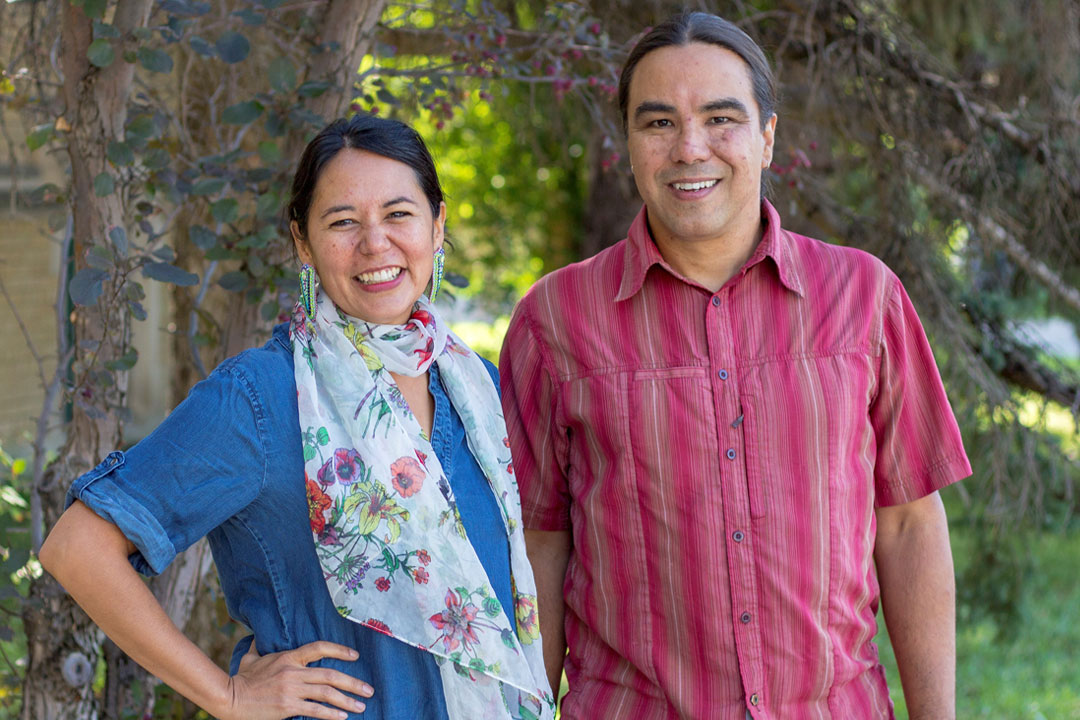
U of S to host scholars from New Zealand
A delegation of a dozen Maori scholars and artists from New Zealand will visit the University of Saskatchewan campus later this month as part of an international trip to Canada.
By Shannon BoklaschukFour faculty members from the University of Waikato, along with eight doctoral students and academics who recently completed their PhD dissertations, will be in Saskatchewan from Aug. 28-Sept. 3.
Some of the activities on their busy itinerary include touring the Gordon Oakes Red Bear Student Centre, meeting with representatives from the U of S International Research and Partnerships Office, participating in a health roundtable discussion at Wanuskewin Heritage Park, presenting at the International and Indigenous Research Forum on campus, speaking at Station 20 West, performing at Remai Modern and visiting the Beardy’s and Okemasis Cree Nation and Willow Cree Healing Lodge at Duck Lake, Sask.
“We’re hoping to develop firm relationships between our faculty and our students to have new opportunities for global Indigenous research,” said Michelle Johnson-Jennings, a professor in the Department of Indigenous Studies in the College of Arts and Science at the U of S.
Johnson-Jennings said the purpose of the visit is to share knowledge and to learn from and inspire each other, noting a memorandum of understanding between the two universities is in the works. She said Indigenous people in Canada and in New Zealand have some similar experiences.
“We have a shared history of colonialism from the British Empire, so a lot of that shared history and overlap has guided a lot of our disparities now—actually formed a lot of our disparities and continues to contribute to those,” she said.
“Through Indigenous ways and knowledge systems, then we’re able to see how others have persisted in being healthy—and more of a positive approach as opposed to a deficit approach, which I think is beneficial to our communities.”
Renowned scholar Linda Smith, from the University of Waikato’s Faculty of Maori and Indigenous Studies, will be a part of the visiting delegation. In April 2018, Smith was presented with an Honorary Doctor of Laws from the University of Winnipeg in recognition of her decades championing Indigenous research and scholarship.
Johnson-Jennings and her husband Derek Jennings, a professor in the Department of Community Health and Epidemiology in the College of Medicine, came to the U of S in February 2018 following employment at the University of Minnesota. They are the main organizers of the Maori visit and have relationships with Smith and other faculty at the University of Waikato that stem back nearly a decade.
“About 10 years ago, we had done some health research with my own tribal community—the Choctaw Nation—and my colleague there, Dr. Karina Walters, had done a Fulbright (fellowship) in New Zealand as well, at the University of Auckland,” said Johnson-Jennings, noting she was invited to tour 13 different Maori Indigenous communities as a result of that work.
“From that initial relationship, we’ve since developed further relationships with Dr. Linda Smith and Dr. Leonie Pihama. They’ve really become our family over the years—and more, recently, we spent a Fulbright last year at the University of Waikato with them and spent time with them, seeing where we overlap in research and how we can share and grow together.
“We have hosted them previously, when we were at the University of Minnesota, because we developed and lead a Research for Indigenous Community Health (RICH) Center there. So we’ve always been very focused on community-engaged research and they, likewise, are also very focused on working with Indigenous communities and conducting community-engaged research.”
Johnson-Jennings said the University of Waikato professors encouraged both her and her husband to pursue their current positions at the U of S. The New Zealand residents wanted to visit the couple in Saskatchewan once they took their new jobs.
“They were a big motivating factor, actually, to choose these positions. They had heard about the University of Saskatchewan; they knew about the great work that was being done here in Canada around Indigenous issues and Indigenous research, and they saw it as a very positive move and really spoke highly of us coming here,” said Johnson-Jennings.
“They have strong connections and really encouraged us to be part of what’s happening here. They thought it would be a good place to grow intellectually and also to keep those partnerships and relationships going with them.”
The upcoming Maori visit will mark the first time that most of the University of Waikato scholars have come to the U of S. Johnson-Jennings and Jennings believe the members of the delegation will have positive experiences in Saskatchewan and will feel welcomed and at home at the U of S, where they will quickly make connections with others.
“With the large Indigenous population in Saskatoon and some of the things we have planned, we’re hoping that they have a great experience and that it’s an opportunity for kind of a long-term relationship with the university and its academics,” said Jennings.
Robert Alexander Innes, head of the Department of Indigenous Studies, said the Maori scholars’ visit offers U of S faculty and graduate students “the opportunity to interact with some of the leading scholars in Indigenous studies.” He noted many academics have read, or heard of, Linda Smith’s influential book from 1999, Decolonizing Methodologies.
“That term, from her book, resonates throughout Indigenous studies specifically and in Indigenous research in general,” said Innes.
“I think that it’s such an honour to be able to host them and to be their guides through the days that they’re here. I think people are just excited that they decided that the University of Saskatchewan—and the Indigenous Studies department—is a place that they want to come to.”
Following their visit to the U of S, the members of the University of Waikato delegation will visit the University of Alberta and the University of British Columbia.

